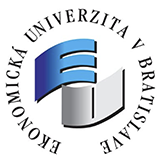Detailed introduction of University of Economics in Bratislava:
Introduction
The University of Economics in Bratislava is one of the largest universities in the Slovak Republic and an important part of the European Higher Education Area and the European Common Research Area in Bratislava. It aims to provide high-quality higher education services, develop knowledge based on free and innovative science, and contribute to the development of knowledge society in Slovakia and the European region.
Overview
Student size: about 8,000 students.
Faculty: 612 faculty members, of which 98% are domestic faculty members and 2% are international faculty members.
History and establishment time
The school was founded in 1940 as the Bratislava Business School, a private university. It became nationalized in 1945 and renamed the Slovak Business School. After several developments and changes, it was established in 1992. In 2000, it was renamed the current University of Economics in Bratislava.
School Strength
Teaching: It offers bachelor's, master's and doctoral degree programs, covering many majors such as business management, biochemistry, computer science, economics, engineering, philosophy, geography, geology, and languages. The curriculum is rich and diverse, focusing on the combination of theory and practice, and adopting modern teaching methods and means to cultivate students' professional ability and comprehensive quality.
Scientific research: It actively carries out scientific research activities and has achieved a series of influential research results in the fields of economics, business, and management. The school has a group of high-level scientific researchers who have published a large number of papers in domestic and foreign academic journals and have undertaken a number of national and international scientific research projects.
International Exchange: It has extensive international cooperation with more than 230 universities and colleges around the world, and carries out projects such as student exchanges, teacher visits, and joint research. The school has also carried out dual degree cooperation projects with many foreign universities, providing students with broad international exchange and learning opportunities.
Institutional nature
Public university.
Educational philosophy
Aims to cultivate harmoniously developed personalities through university education, enhance human wisdom, kindness and creativity, and develop knowledge in the fields of business, economy, society and humanities based on creative scientific research, and contribute to the development of a knowledge-based society.
Key laboratories and disciplines
Key disciplines: Economics, finance, accounting, international trade, marketing, management and other disciplines are the school's key disciplines, with a high level and influence in teaching and scientific research, some of which are in a leading position in Central and Eastern Europe.
Laboratory situation: Although no specific key laboratories have been found, the school is equipped with corresponding experimental facilities and research centers for teaching and scientific research in various disciplines to support students and teachers' practical teaching and scientific research activities.
Department settings
The school has the following departments:
School of National Economy: Focuses on teaching and research in the fields of macroeconomics, microeconomics, economic policy, etc., and cultivates students' understanding and analysis of the laws of national economic operation.
Business School: covers majors such as marketing, international trade, e-commerce, logistics and supply chain management, and cultivates professional talents in the business field.
School of Economics and Information: has professional directions such as information systems, data analysis, and the application of artificial intelligence in the economy, focusing on cultivating students' ability to use information technology to solve economic problems.
School of Business Management: includes majors such as business management, human resources management, financial management, and strategic management, and cultivates business talents with comprehensive management capabilities.
School of International Relations: mainly studies international economic cooperation, international business negotiations, multinational corporate management and other fields, providing students with an international business perspective and cross-cultural communication skills.
School of Applied Languages: provides a variety of foreign language courses, such as English, German, French, Spanish, Russian, etc., to cultivate students' language skills and cross-cultural communication skills to meet the needs of international business activities.
Košice School of Business Administration: focuses on professional education in the field of business administration, and cultivates applied business administration talents for local and surrounding areas.
Rankings
In 2021, the university is among the 6% of schools worldwide that specialize in economics research programs and have received the prestigious AACSB accreditation, making it the first university in Slovakia, the first in the former Czechoslovakia, and the third in the V4 countries to receive this accreditation.
The ranking was not clear in the EECA University Ranking 2015, but the university is one of the top universities in Slovakia.
Expenses
Tuition fees: For Slovak citizens and EU residents, tuition fees are borne by the state. Tuition fees for international students vary depending on the major and degree level, and are approximately 2500-4000 EUR per year for undergraduates, 3000-5000 EUR per year for masters, and 4000-6000 EUR per year for doctoral students.
Living expenses: In Bratislava, the monthly living expenses are about 400-600 euros, of which accommodation costs about 200-300 euros/month, food costs about 150-200 euros/month, and other expenses include transportation, school supplies, entertainment, etc., about 50-100 euros/month.
Campus
Campus facilities: The campus is located in Bratislava, the capital of Slovakia. The city is a modern, vibrant and historic city located on the banks of the Danube River in the center of Europe. The school has modern teaching buildings, libraries, laboratories, computer centers and other teaching and research facilities, as well as student dormitories, canteens, gymnasiums and other living and entertainment facilities, providing students with a good learning and living environment.
Campus life: The school focuses on the comprehensive quality training of students and organizes various colorful campus cultural activities, such as academic lectures, cultural and art exhibitions, sports competitions, student club activities, etc. The school also has a number of student organizations and clubs, covering multiple fields such as culture, art, sports, and academics. Students can participate in corresponding club activities according to their interests and hobbies to enrich their extracurricular life and expand their interpersonal network.
-
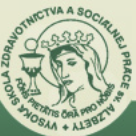
St. Elizabeth College of Health and Social Work
-
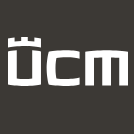
University of St. Cyril and Methodius in Trnava
-

Technical University of Kosice
-

Matej Bel University in Banská Bystrica
-

Slovak University of Agriculture in Nitra
-
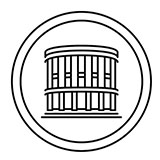
Comenius University in Bratislava
-

Pavol Josef Safarik University
-
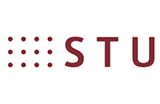
Slovak University of Technology in Bratislava
-
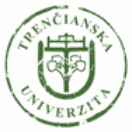
Alexander Dubcek University, Trencin
-

University of Žilina
-

Mesoamerican University
-

Istmo University
-

Mariano Galvez University of Guatemala
-

Regional University of Guatemala
-

Galileo University
-

Francisco Marroquín University
-

Rafael Landívar University
-

University of the Valley of Guatemala
-

University of San Carlos of Guatemala
-

Technological Institute of Tlaxcala Plateau
-

Golfo University
-

Technological University of South Sonora
-

Technological University of Huejotzingo
-

Tizimín Institute of Technology
-

Chilpancingo Institute of Technology

